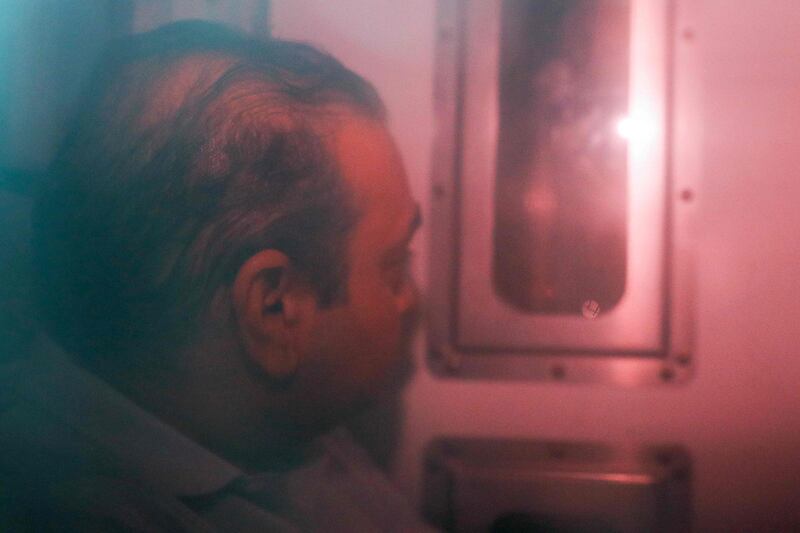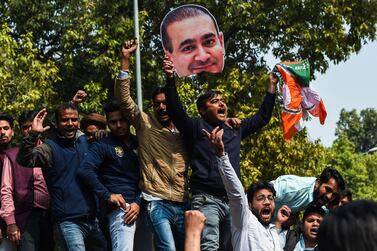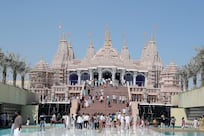Billionaire jeweller Nirav Modi was denied bail on Wednesday after a British judge found evidence of “concerted effort” to interfere with witnesses in a multi-billion fraud case being brought in his native India.
The jeweller has been held in a grim London jail since March while the Indian authorities sought his extradition to face accusations of conspiracy to commit fraud and money laundering at India’s state-run Punjab National Bank.
Mr Modi, 48, has made repeated but unsuccessful attempts to secure bail since he was tracked down to a luxury apartment block in central London. His latest attempt failed on Wednesday after the judge, Ingrid Simler, said that witnesses needed to be protected from undue influence.
“There is evidence that manipulation has occurred and that a concerted effort has been made to interfere with witnesses,” she said.
The judge said Mr Modi’s US-based brother Nehal Modi had travelled abroad to meet with directors of Mr Modi’s firms and destroyed their mobile phones.
She dismissed claims by Mr Modi’s legal team that this was to stop them being tracked by authorities rather than to destroy evidence, saying their claims did “not stand up to scrutiny”.
“I cannot … conclude that there is no realistic scope for such activity in future,” she told London’s High Court.
The 48-year-old jeweller spent 15 months on the run after he and his uncle Mehul Choksi were accused of fraudulently securing guarantees from the bank that were then used to obtain loans from abroad.
Mr Modi kitted out celebrities such as actresses Naomi Watts, Kate Winslet and Priyanka Chopra-Jonas with jewellery and owned a chain of luxury stores across the world before his fall from grace and self-exile to the UK.
Mr Modi had offered to pay £2m bail and wear an electronic tag along with a host of other restrictions to keep him out of jail during the extradition attempt that can take more than two years before the process is exhausted. His lawyers had claimed that he had not evaded justice but had been living openly in the UK, paying council tax and had been trying to get a driving licence.
He was arrested on March 19 in a branch of the Halifax bank after being tracked down by reporters from the Daily Telegraph newspaper. He is being held in Wandsworth prison, where conditions have been repeatedly criticised by inspectors.
His lawyer, Claire Montgomery, described conditions in the jail as “extreme”. Three previous bail applications had been rejected at a lower court.
The judge said on Wednesday there was strong evidence to suggest Mr Modi had the means to abscond if given bail. Forbes estimated Mr Modi's wealth at $1.73 billion before the alleged fraud, placing him 85th on India's rich list.
Mr Modi’s art collection has already been auctioned off by the Indian authorities, raising $8m for the taxman.
The Indian authorities have also reportedly seized and destroyed the billionaire's $14 million, 33,000-square-foot property near Mumbai. Mr Modi, who was not present at Tuesday’s hearing, was remanded in custody until June 27.








